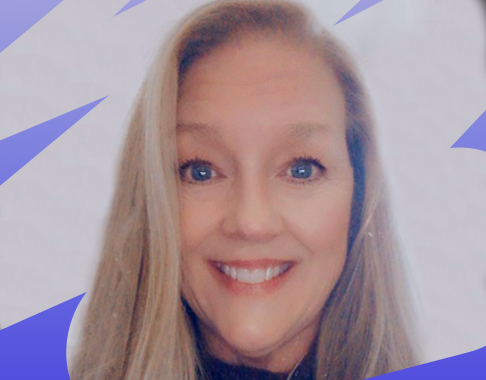Continuing teletherapy collaboration
Speech teletherapy also allows for collaborative interaction with school staff and parents, just as in-person speech therapy does. The Imagine Learning SLP handles all aspects of a student’s case management, from screening to direct therapy minutes. IEPs are held virtually, which allows parents to participate from anywhere, and has increased the probability that the parent will be able to attend the IEP meeting and have an active role in planning for their child’s academic success. Parents often say that meetings held virtually are less stressful, more convenient, and less intimidating than in-person IEP meetings, which is thrilling to hear.
The convenience, effectiveness, and equity of speech teletherapy is unparalleled. Now that students, schools, and parents have gotten a taste of the benefits of virtual therapy, we’re unlikely to return to solely in-person speech-language therapy anytime soon. The future of speech-language therapy is virtual — and bright.
Additional Reading: Speech and Language Telepractice
Explore these additional resources that discuss the efficacy of speech and language telepractice:
Coufal, K., Parham, D., Jakubowitz, M., Howell, C., & Reyes, J. (2018). Comparing traditional service delivery and telepractice for speech sound production using a functional outcome measure. American Journal of Speech-Language Pathology, 27(1), 82-90.
Gabel, R., Grogan-Johnson, S., Alvares, R., Bechstein, L., & Taylor, J. (2013). A field study of telepractice for school intervention using the ASHA NOMS K-12 database. Communication Disorders Quarterly, 35(1), 44-53.
Grogan-Johnson, S. (2021). The five Ws meet the three Rs: the who, what, when, where, and why of telepractice service delivery for school-based speech-language therapy services. Seminars in Speech and Language, 42(02), 162-176.
McCullough, A. (2001). Viability and effectiveness of teletherapy for pre-school children with special needs. International Journal of Language and Communication Disorders, 36(S1), 321-326.
Towey, M. P. (2012a). Speech telepractice: Installing a speech therapy upgrade for the 21st century. International Journal of Telerehabilitation, 4(2), 73-78.
